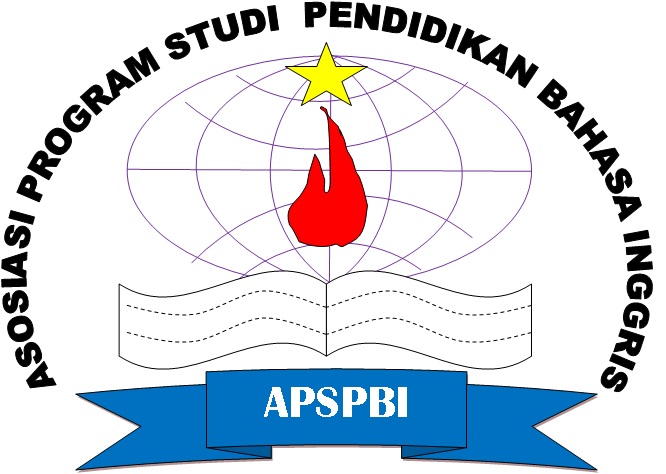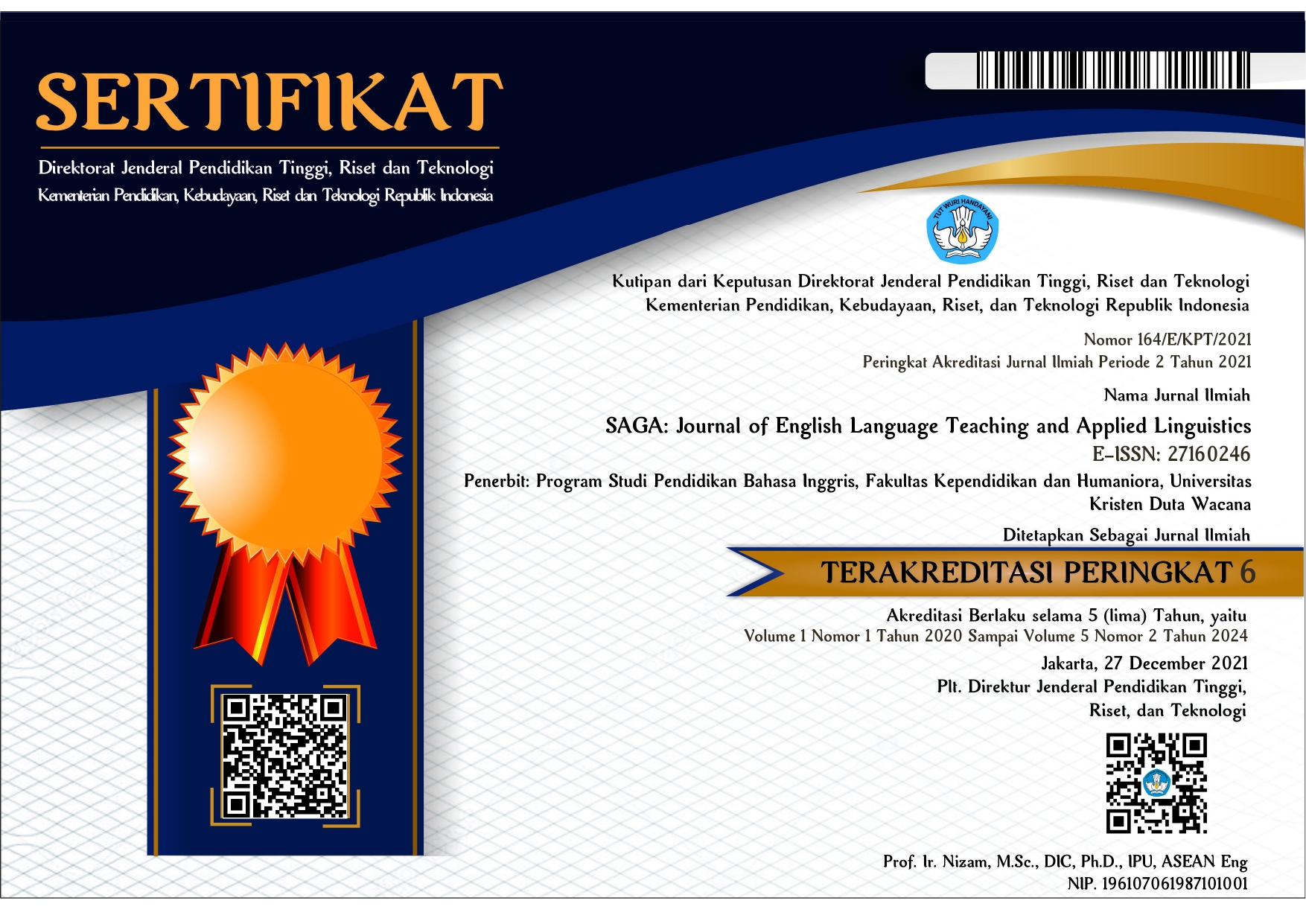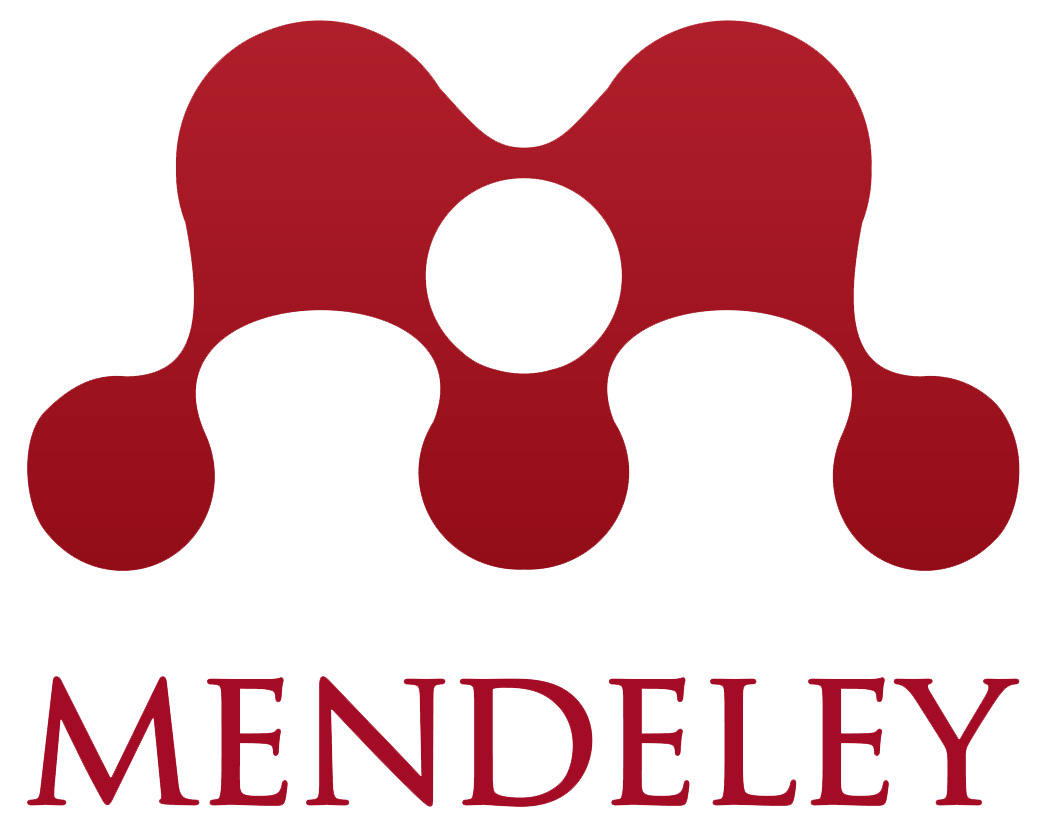WASHBACK OF BROADCAST PROJECT-BASED ASSESSMENT FOR TOURISM 4.0 ERA ON STUDENTS’ LEARNING
DOI:
https://doi.org/10.21460/saga.2020.11.24Keywords:
broadcast-project, washback, learningAbstract
Language assessment should support the learning process. Therefore, studying the washback of the assessment process is important to evaluate whether the assessment supports the learning process. English for tourism students is part of English for Specific Purposes (ESP). Therefore, the appropriate assessment should be authentic since the need of their English is to perform their English based on their future professional setting. In Tourism 4.0 Era, tourism is not only dealing with welcoming guests, guiding, or arranging an itinerary but also broadcasting using internet media. One of the efforts to prepare the students with those demands is conducting the broadcast project-based assessment. This research aims at identifying its washback in the students’ learning. In-depth interview was employed as the data collection method. The results show that motivation and learning improvement were the washback of broadcast project-based assessment on learning.
References
Baksh Alla, M. E. (2016, May 18). Washback effect of school-based English language assessment: A case study on students' perceptions. Pertanika Journal, III(24), 1069 - 1086. Retrieved May 27, 2019 from http://www.pertanika.upm.edu.my/
Brown, D. H. (2004). Language assessment. New York: Pearson Education, Inc.
Cald3. (2008). Cambridge Advanced Learner's Dictionary. Cambridge: Longman.
Catalano, A. J. (2015). Foreign Language Teaching and Learning. JD.Right, International Encyclopedia of Social and Behavioral Sciences 2nd Edition. 9(social and behavioral science), 327.
Dale, H. S. (2008). Learning theories: An educational perspective (fifth edition). New Jersey: Pearson Education, Inc.
Dorobat, D. (2007). The methodology of evaluation and testing. Athena: Ministerul Educatiei si Cercetarii.
Ferla, S. (2007). Can authentic assessment help in delivering competent consumers of statistics for non-academic professions?. IASE/ISI Satellite, 1-7.
Froehlich, A. A. (2015). Alternative in assessment. In handbook of assessment for language teachers (pp. 148-178). TALE Project.
Harmer, J. (2001). The practice of English language teaching. Essex: Pearson Education Limited.
Iswantara, W. (October 25, 2017). Kompasiana. Retrieved June 17, 2019 from https://www.kompasiana.com/wilistara/59f0b474ff2405275c076ef2/sinergi-media-penyiaran-dengan-media-sosial?page=all#
Kordia, S. N. (2015). Test impact. In handbook of assessment for language teachers (pp. 179-211). Greece: TALE.
McNamara. (2010). Language testing. Oxford: Oxford University Press.
Pierce, O. (1998). Authentic assessment for English language learners. New York: Addison-Wisley Publishing Company, Inc.
Race, P. (2010). Making learning happen. London: SAGE Publications Ltd.
Rizkinaswara, L. (March 1, 2019). Ditjen Aptika. Retrieved July 21, 2019, from http://aptika.kominfo.go.id
Sanal, F. (2017). Foreign language teaching and learning theories/approaches. Journal of Turkish Language and Literature, 3(2), 221.
















